FAQ's
Our expert team have put together a few answers to some of you rmost asked questions. Contact our friendly team today for more information.
Why is this happening?
The Government wants to take this step to give better clarity regarding responsibilities for the sewerage system. The aim of the transfer is to allow a more integrated approach to the whole wastewater network but most importantly, to remove a burden from our customers whose homes are currently served by these sewers and drains
What is the timeline for this taking place?
There are still a number of steps ahead. We believe the transfer of ownership will take place towards the end of 2011 (probably in October 2011) so we have a team in United Utilities who are working to ensure that we're ready. We believe that the sewers and drains will transfer sometime in October 2011. Private pumping stations will be subject to a separate transfer timetable but are likely to have all transferred by 2016.
How will I know my sewer is being transferred?
By law, we must inform you about this change. Once the change in ownership has been signed off in Parliament we will write to all customers and continue to publish information on our website. You will have the right to appeal against the transfer.
I have a blockage in my sewer. I have read that you are now responsible. Please, can you come and fix it?
The changes which mean UU owns the majority of the private sewer network will not come into place until Autumn 2011. That is the time we expect the changes to take place, it has not been confirmed by the Government. In the meantime, responsibilities do not change. If a property was built in 1937 or later the pipe connecting the property to the public sewer (the drain) is the responsibility of the homeowner. If there are sections of the pipe that connect more than one property to the public sewer, then these are the joint responsibility of those properties served. If the property was built before 1937, the drain that serves only that property is still the responsibility of the homeowner. However, the sections of the pipe that connect more than one property to the public sewer are owned and maintained by UU already.
Why does the responsibility for some drainage pipework currently depend on if my house was built before or after 1937?
The 1936 Public Health Act set out a range of responsibilities for the operation and maintenance of sewerage systems. In simple terms, it meant that all sewers (which are defined as pipes serving more than one property) constructed prior to the 1 October 1937 would be classed as public sewers. As United Utilities is now responsible for maintaining all public sewers, we will deal with problems on these 'pre-1937 sewers'. Sewers constructed after this date are not our responsibility unless the developer who constructed them applied for them to be formally adopted by UU and built them to a required standard.
Are you going to put up my bill to pay for taking on these assets?
Yes, it is likely that bills will increase at some time in the future. When the government announces the scope and timing of the transfer, the water companies along with the regulator (Ofwat) will review the additional cost burden and a decision will be made as to how and when bills will increase to cover these additional costs.
Is this extra cost fair?
Currently all our customers are paying towards the upkeep of the public sewers but some also have private sewers to maintain. From transfer, the cost of sewer maintenance will be spread more fairly and customers will have peace of mind that their sewer is our responsibility.
If you are taking over the pipe running through my back garden, will this affect me if I want to extend my property in the future?
The honest answer to this is yes, it will, although we would not want to restrict our customers from improving their homes. We do need to ensure though that the sewer is appropriately protected from such works in order to prevent any damage to the pipe and also to the extended building.
Will I see a reduction in my buildings insurance premium?
Private sewers and lateral drains are often covered by domestic buildings insurance. With assets changing ownership away from householders, we would expect buildings insurers to review the premiums they charge homeowners. However, this will be a decision for insurance companies to make.
Does this mean you will want to dig up my garden to replace the sewer?
We would only look to carry out repairs where they are necessary to help minimise the chance of problems occurring on the sewer and causing inconvenience or disturbance, such as flooding, to our customers. If any work is required on a customer's property, we will always aim to inform them of this and discuss how this will affect them, including reinstatement after the work.
If we want to keep responsibility for the sewer ourselves can we opt out of the transfer?
It will be possible for customers to opt out of the transfer via an appeals process. This has not yet been finalised but we expect the details of this to be provided once the regulations have been confirmed.
Which pipes at my property will you be taking responsibility for?
This will be dependant on each individual property. However, we believe that responsibilities are likely to change as per the illustration of existing and future arrangements.

 Call Now
Call Now Get A Quote
Get A Quote-1.png)
-2.png)
-3.png)
-4.png)
-5.png)
-6.png)
-7.png)



